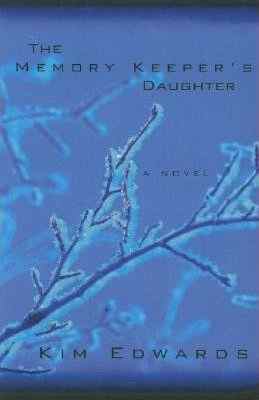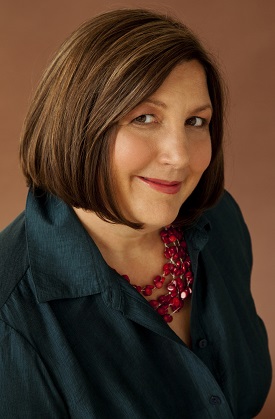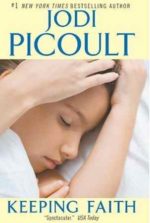 Synopsis:
Synopsis:
Author Kim Edwards describes the books’ premise this way: “The Memory Keeper’s Daughter opens with a pivotal moment, one that changes the lives of all its characters forever.” A critical decision made in that moment informed Edwards’ crafting of a story to understand how her “characters responded to the events of this night and how their choices shaped their lives.”
The stunning novel begins on a winter night in 1964, when a blizzard forces Dr. David Henry to deliver his own twins.
His son, born first, is perfectly healthy, but the doctor immediately recognizes that his daughter has Down syndrome. For motives he tells himself are good, he makes a split-second decision that will haunt all their lives forever. He asks his nurse, Caroline, to take the baby away to an institution. Instead, she disappears into another city to raise the child as her own. Compulsively readable and deeply moving, The Memory Keeper’s Daughter is a brilliantly crafted story of parallel lives, familial secrets, and the redemptive power of love.
Review:

Familial relationships can be simultaneously delicate, yet irrepressible. Edwards’ debut novel spans a quarter century from 1964 to 1989, exploring the life of a nuclear family in which one member harbors an unthinkable secret against the backdrop of rapidly evolving societal roles and expectations.
In 1964, it would not shock one’s conscience to learn that the parents of a child born with a disability such as Down syndrome opted to place him/her in an institution rather than raise the child in their home with his/her siblings. Such placement was consistent with conventional thinking that the child would be better cared for in such a setting and the remaining family members would be spared the perceived day-to-day grief of dealing with a child who has special needs. Today, of course, such a plan would be, for most parents, completely unimaginable. But the struggle for children with special needs to be accorded the same opportunities as other children, including the right to attend school alongside their peers, continued well into the 1980’s when Ryan White, a hemophiliac diagnosed with HIV in December 1984, the result of a contaminated blood treatment, successfully fought to continue his public school education. The “tremendous amount of research . . . for this book, particularly on Down syndrome,” conducted by Edwards is apparent and brings authenticity to the story.
And, of course, women’s lives and roles within and outside their familial units were far different in 1964 from today. Indeed, the very manner in which women gave birth in the mid-twentieth century — sedated, unconscious — allows the plot to unfold. The impact of the Women’s Movement is most important to and apparent in the transformation of the character of David’s wife, Norah. It is also not-so-subtly illustrated through the character of Norah’s sister, Bree, as well as Norah’s feelings for and reactions to Bree. Edwards notes that the two women were born just a “few years apart, but belong[], in many ways, to completely different eras.” (The women’s relationship was once of the most intriguing aspects of the story, given that I have one sister, eight years my senior, and like the two women in this book, we could not be more different, to the point that I view her as being part of a different generation than the one to which I was born.)
In the tradition of the best storytellers, Edwards has created characters who reside in the shadows of good and evil, black and white, right and wrong. Each is flawed in his/her own way and it is the characters’ shortcomings that make them fascinating while compelling the story forward. Edwards skillfully pulls readers into the characters’ emotional states, as in this passage about the night Dr. David Henry made the decision that would define his life, as well as his family’s lives:
Later, when he considered this night — and he would think of it often, in the months and years to come: the turning point of his life, the moments around which everything else would always gather — what he remembered was the silence in the room and the snow falling steadily outside. The silence was so deep and encompassing that he felt himself floating to a new height, some point about this room and then beyond, where he was one with the snow and where this scene in the room was something unfolding in a different life, a life at which he was a random spectator, like a scene glimpsed through a warmly lit window while walking on a darkened street. That was what he would remember, that feeling of endless space.
Wisely, Edwards did not make David a villain or monster.
“There’s a place,” he said, writing the name and address on the back of an envelope. “I’d like you to take her there. when it’s light, I mean. I’ll issue the birth certificate, and I’ll call to say you’re coming.”
“But your wife,” the nurse said, and he heard, from his distant place, the surprise and disapproval in her voice.
. . .
“Don’t you see?” he asked, his voice soft. This poor child will most likely have a serious heart defect. A fatal one. I’m trying to spare us all a terrible grief.”
He spoke with conviction. He believed his own words. The nurse sat staring at him, her expression surprised but otherwise unreadable, as he waited for her to say yes. In the state of mind he was in it did not occur to him that she might say anything else. He did not imagine, as he would later that night, and in many nights to come, the ways in which he was jeopardizing everything. . . .
. . .
His wife slept, her gold hair splayed across the pillow. Now and then the doctor dozed. Awake, he gazed into the empty parking lot, watching smoke rise from the chimneys across the street, preparing the words he would say. That it was no one’s fault, that their daughter would be in good hands, with others like herself, with ceaseless care. That it would be best this way for them all.
Because the reader accepts and relates to David’s humanity — an individual caught in circumstances he neither imagined nor planned from which he cannot extricate himself — the story progresses in believable, if foreseeable, fashion. The transformation through the decades of each main character is predictable, right down to Norah’s eventual liberation, the teen-age rebellion of she and David’s son, and, ultimately, David’s fate. The ending becomes clear early on, especially after one plot development that was obviously designed to shock the reader. The story bogs down at a number of junctures, sometimes mired in unnecessary minutiae that serves to advance neither the plot nor characterizations. But since the route to the inevitable ending is somewhat circuitous, the story held my attention until the very last page. After all, sometimes the journey is as much fun as arriving at a predetermined destination.
I thoroughly agree with the reviewer who praised Edwards’ “message of tolerance for people with Down syndrome,” decreeing it “as dignified and moving as a sermon.” Without being preachy, Edwards paints a portrait of an adoptive mother, Caroline Gill, who fights for her daughter each and every day of her life. From Caroline’s determination to see her baby daughter achieve milestones that other parents take for granted to her engagement in the battle for her daughter’s equality in a mainstream classroom, Caroline possesses strength and grit. Her compassion for and fierce desire to protect her daughter is beautifully juxtaposed against her moral dilemma about the manner in which she came to motherhood, drawing the reader in and invoking an emotional attachment to and empathy with Caroline that is as confusing and frustrating as it is satisfying. After all, other than David, Caroline is the only character privy to the secret and her decision not to reveal it is not entirely altruistic.
Ultimately, the book’s power springs from Edwards’ refusal to draw conclusions for her readers. Rather, she presents the case for each characters’ actions and reactions, and leaves it to the reader to resolve the layers of moral ambiguity. By the last page, the reader is assured of only one fact: Families survive and endure. They exist in myriad formations and are frequently punctuated with secrets and deception. But because they are ultimately knit from love, families endure. Even when secrets are revealed and forgiveness is meted out slowly, if ever.
The Memory Keeper’s Daughter is a quick, mostly engrossing read, and perfect for a book discussion group because of the numerous ethical and moral questions it raises.


13 Comments
[New Post] Book Review: The Memory Keeper’s Daughter https://www.jhsiess.com/2010/04/24/book-r…
Reading the first couple of paragraphs of your post, the book sounds intriguing. I was afraid to read more, didn’t want to know what happened in case you gave it away. lol
Making a note of this title, need a book to take on vacation; thanks for the tip.
Sandy
.-= sandy´s last blog . . . Traveling Books and Parks, with Flat Stanley =-.
Sandy, I would never give away too much!
I am always intrigued in books with sensitive subjects such as Down syndrome. I am always interested in how the author will handle it. Great review!
Wow what a thorough review. Read this a while back, but your review really did a lot to bring it back into prespective for me. Have a great weekend.
Your review is very in-depth and I agree. The characters were all interesting; however, I didn’t like the husband. I liked the book better than the movie and agree it would be an excellent choice for a book club to discuss.
.-= Karen, author of “My Funny Dad, Harry”´s last blog . . . Now That’s A Tool I Can Use! Thanks, Dad! =-.
One of my best friends gave me this because she loved it, but I haven’t read it yet. Thanks for your good review. I really need to move this one higher on my TBR pile.
And thanks for visiting Rose City Reader and for your good wishes on my trial victory.
The review of this book has convinced me to read this. I would love to find out the journey Caroline had to bring up her adopted daughter. This one I am definitely buying.
Wow, this sounds intense. Very detailed review. I think I would need a whole box of tissue to read this one.
Very interesting book. I agree with you saying that this is perfect for some group discussions because of its numerous ethical and moral questions it raises. I’ll count this one among the books to read.
Pingback: Saturday Review of Books: April 24, 2010 | Semicolon
Pingback: The Mad Editor’s Round-Up #20 | Diary of a Mad Editor
Pingback: Dodgeblogium » BoMS well I never…